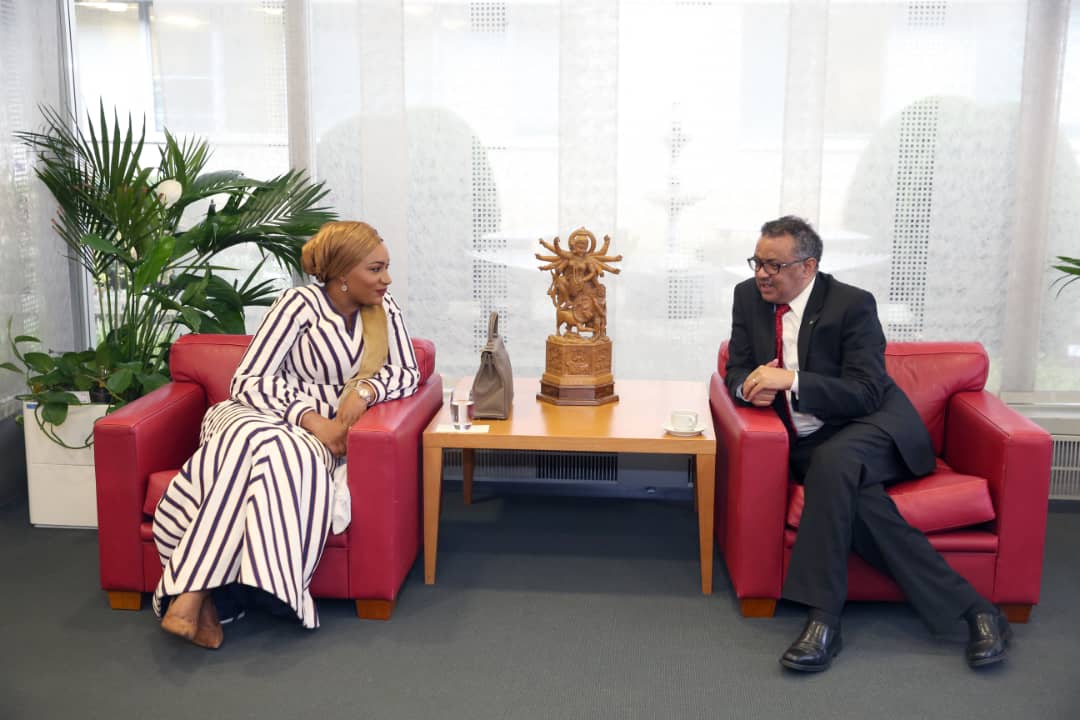
Design local solutions for air pollution - Samira Bawumia to WHO
The wife of the Vice President, Mrs. Samira Bawumia has called for concerted efforts in tackling air pollution and its attendant effects on health.
She made this call at the Opening Plenary of the first-ever World Health Organisation (WHO) Conference on Air Pollution and Health in Geneva, Switzerland.
Advertisement
In her opening remarks, the Second Lady, who also doubles as a Global Ambassador for the Clean Cooking Alliance ( a public-private partnership hosted by the United Nations Foundation to save lives, improve livelihoods, empower women, and protect the environment), reechoed the effects of air pollution, largely, caused by ‘dirty' energies employed by women, across the world, particularly, in Africa and Asia in cooking.
Mrs Bawumia cited the inability of African countries to meet the air quality guidelines of the WHO. "About 97 per cent of cities with more than100,000 inhabitants, in developing countries, do not meet ‘WHO’ air quality guidelines", she noted.
She further asserted that some 7 million "avoidable and unacceptable deaths", resulting from diseases such as stroke, chronic obstructive pulmonary diseases, lung cancer and acute lower respiratory infections, which are all ripple effects of air pollutions, occur among populations living in settings exceeding the WHO's air quality limits.
The Second Lady bemoaned the lack of air quality monitoring systems, to quantify the extent of air pollution in Africa.
This, she explains, as having dragged the fight against air pollution, because it is almost impossible to know the magnitude of resources to commit to tackling the menace.
She, however, commended the effort of the ‘WHO’ in bringing, together, global, national and local partners to share knowledge and mobilise action for the cleaner and better health, globally.
The Second Lady further called for increased discussion and conversations on the issue. ‘Let us continue this conversation while placing emphasis on the target regions in particular.
This would require bringing them to the discussion table, getting their buy-in and finding champions in those countries in order to ensure successful partnerships. In doing so, let us engage African leaders, policymakers, experts, and civil societies while building local capacity; local solutions require local participation and ownership’, she said.
It must be recalled that issues of health and healthy wellbeing among Ghanaians, particularly women have been at the top of the agenda of
Through the SEHP,
The safe delivery project endeavours to distribute one hundred thousand (100,000) birth kits to expectant mothers in their third trimester, in deprived communities. The project has, additionally, trained traditional birth attendants and several health workers.
SEHP has also equipped selected health facilities in deprived communities in Ghana. So far, SEHP has retooled the Tamale Teaching Hospital, other four (4) health centres, and ten (10) Community-Based Health Planning and Services (CHPS) Compounds with necessary medical and surgical equipment, as well as medical consumables.
In the area of education,
A total of about 40,000 pupils are expected to benefit from these books. This is in fulfilment of a quest to improve literacy and instil a culture of reading among students in Ghana.
SEHP with support from the United Nations Population Fund (UNFPA) has launched a Coalition of People against Sexual and Gender-Based Violence and Harmful Practices (CoPASH).
Bringing her remarks to a close, Mrs. Bawumia, who was recently named as the African Woman of Excellence by the African Union Commission and the Diasporan African Forum in Johannesburg for her contribution to the cause of humanity asserted that, the issues of air pollution and its impact on health is a human issue, therefore a global issue. She added - “Let us continue this conversation while placing emphasis on the target regions in particular.
This would require bringing them to the discussion table, getting their buy-in and finding champions in those countries in order to ensure successful partnerships. In doing so, let us engage African leaders, policymakers, experts, and civil societies while building local capacity; local solutions require local participation and ownership.”